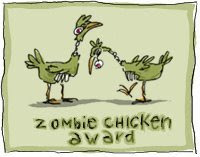Even if I might tend to agree with these ideas, there is another aspect of any discussion on standards and expectation that I think must be considered; another perspective that I know absolutely - without need of statistics or expert testimony - to be true. I know it's true because I have experienced it myself time and again - and have seen it played out in the lives of those around me.
The road to unhappiness is paved with unmet expectations.
Now don't go jumping to conclusions on me - because, due to the folly of human nature, the reverse is NOT true: Meeting all expectations will not necessarily make you happy. Being happy is a whole different discussion (or, possibly, post) - which I don't intend to address here. For today, let's stick with considering the relationship between expectations and happiness.
In simplest terms*, I would express the relationship in this way:
The expectation of a good thing happening to me - has a direct relationship to my unhappiness (if the expectation is not met) and an inverse relationship to my happiness (if the expectation is met).Let's say that again in a different way:
The more I expect a good thing to happen to me, the more unhappiness I will experience if that thing does not happen.And likewise -
The more I expect a good thing to happen to me, the less happiness I will experience if that thing does happen (after all, I was expecting it to happen).Or, to put it one more way -
The more unexpected a good thing is, the happier I will be ifIf you agree with the basic premise, you can see that greater expectations have the overall impact of increasing unhappiness and decreasing happiness. On the street, we call that a lose-lose situation.
it occurs. (Who doesn't like a pleasant surprise?)
I know I haven't discussed the impact of bad things happening - either expected or unexpected - but I think our reaction to those incidents is more complicated than I'll have time for in this post. Besides, the starting point for this rant was examining how the establishment of standards and expectations affects our happiness. That is, does setting goals and making plans for the future tend to make us happy or unhappy? Within that framework, addressing the impact of bad things happening doesn't seem relevant. I mean - who makes plans for bad things to happen? [Today, I will drive the car into a tree.] Or who sets a goal of breaking their leg in three places? [Broken in merely two places will not suffice, dammit!]
So - does all this mean that I think people should avoid having goals, setting standards, and making plans? No way.
But I do think we need to keep those things in perspective. And realize that they may be driving us crazy instead of enriching our lives.
I expect that I may have more to say on the topic of expectations. (DOH!)
Don't know whether you should expect it tomorrow though. I might have to post about hockey. Playoff hockey. In Detroit.
What am I saying: Of course, I'll be posting more about expectations tomorrow. Who could be more burdened with expectations than a Detroit hockey fan in April?
Take care.
*It actually sounds like a damn logic text book - but it was the best I could do.






6 comments:
Today's lesson: Aim Low?
Today's word verification: falst
[So many possibilities. What response avoids total chaos?]
MAW: Honey, once again you've displayed a startling ability to get right to the heart of the matter. And you get extra style points for brevity.
[What's "falst"?]
Wow. You should have included a logic alert there. I'm going to eat some breakfast and have some coffee and come back later when my brain's on.
My word is fatiefat. Is your blog trying to tell me something? I have an excuse for my fattie fat...I just had a baby!
Obviously I need coffee.
Pamela: First of all, I refuse to believe that "fatiefat" was an intentional smear by my blog on your good name and/or figure. I'm going to chalk it up to an administrative error and give the IT staff a good talking-to so that we can avoid anything like that happening again.
Now, I'd like to do a brief exit poll:
1. The first time you read my post (unexpected bad thing), did it make you -
a. happier
b. unhappier
c. heavier
d. groggier
e. None of the above
2. If you reread my post (expected bad thing), did it make you -
a. even happier than before
b. even more unhappy than before
c. throw up
d. promise yourself you weren't going to read anymore sh*t by Jim Styro
e. None of the above
No pressure to respond. It's just my entire self-image riding on this. [Howz that for expectations?]
falst = opposite of troot
I guesst I should've knowed that.
Post a Comment